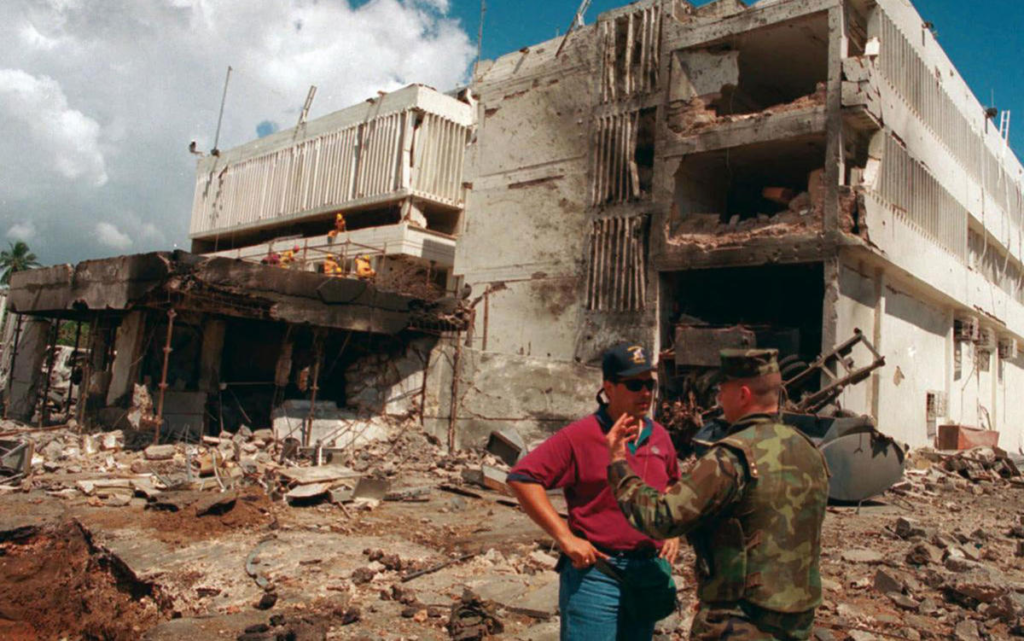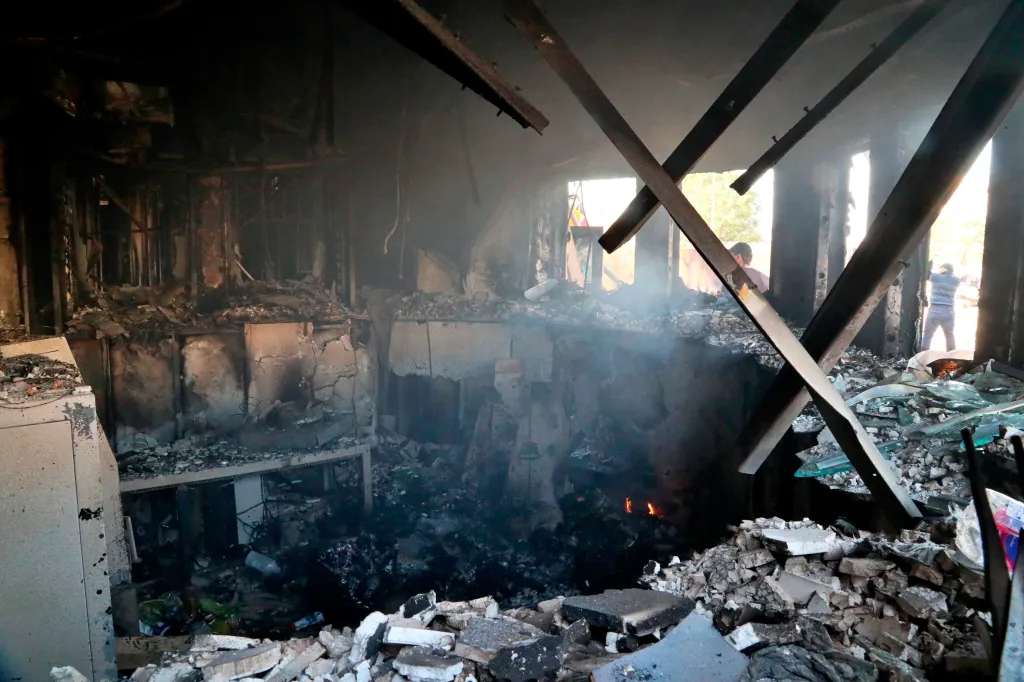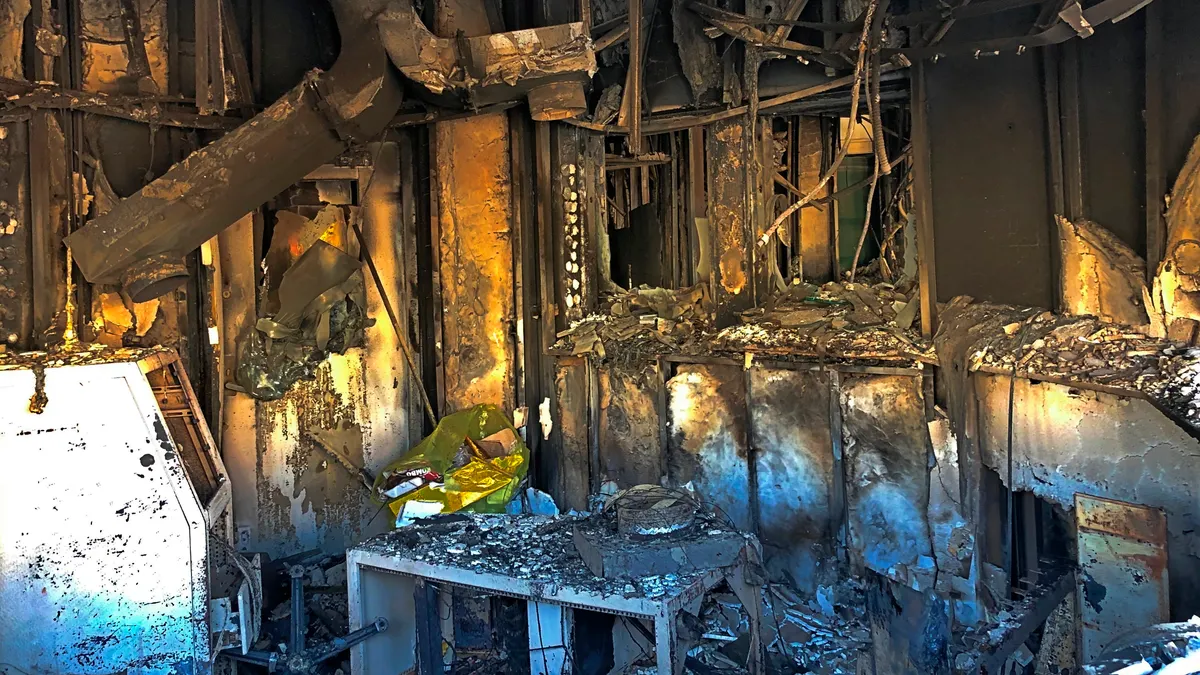The Democratic Republic of Congo (DR Congo) has been thrust into the global spotlight after an alarming attack on the U.S. Embassy in its capital, Kinshasa.
This violent act, marked by armed protesters setting the embassy on fire and chanting anti-imperialist slogans, underscores the volatile environment in the region and raises pressing questions about security, international diplomacy, and the underlying tensions fueling such unrest.
The Attack and Its Immediate Impact
The events unfolded with shocking speed, leaving both local and international communities reeling. Protesters stormed the U.S. Embassy, armed and determined, setting the building ablaze while scaling its rooftop.
Their chants of “Death to imperialists” echoed through the streets of Kinshasa, painting a grim picture of the deep-rooted anger and frustration that has been simmering among parts of the Congolese population.
The embassy, a critical symbol of U.S. presence and influence in DR Congo, was engulfed in flames as local authorities struggled to contain the situation. This violent outburst came amid growing tensions in the region, exacerbated by recent events such as the takeover of Goma, a key eastern city, by rebels reportedly backed by neighboring Rwanda.
Read : Dead bodies litter the streets of Goma city after heavy explosions and gunfire by M23 in DR Congo
The proximity of these events suggests a connection between regional instability and the attack on the embassy, with armed groups and political tensions contributing to a dangerously combustible environment.
"Death to the imperialists."
— Hassan Mafi (@thatdayin1992) January 28, 2025
Angry crowd set the US embassy on fire in Congo.pic.twitter.com/UcCSuJi3Ig
For the United States, the attack has not only caused significant damage to its diplomatic infrastructure but also raised alarm bells about the safety of its personnel in conflict-prone areas.
The international community is closely monitoring the situation, concerned about the potential ramifications for regional stability and the implications for diplomatic missions worldwide.
The Underlying Causes of Unrest
The violent attack on the U.S. Embassy cannot be viewed in isolation. It is a stark reminder of the complex socio-political and economic challenges facing DR Congo and the broader Great Lakes region of Africa. These challenges include persistent conflict, political instability, and deep-seated grievances among the population.
One of the central issues driving unrest is the ongoing conflict involving rebel groups in the eastern part of DR Congo. Goma, a city of strategic importance, recently fell under the control of rebels with alleged backing from Rwanda.
This development has heightened tensions between the two nations, as well as within DR Congo itself. Many Congolese view foreign involvement in their country’s affairs as an infringement on their sovereignty, further fueling anti-imperialist sentiments.

Additionally, DR Congo has long grappled with governance challenges, corruption, and the unequal distribution of resources. Despite being one of the most resource-rich nations in the world, with vast reserves of minerals like cobalt and coltan, the wealth generated from these resources has not translated into better living conditions for most of its citizens.
This stark disparity has bred resentment and mistrust towards both domestic authorities and international entities perceived to be exploiting the country’s wealth.
The attack on the U.S. Embassy reflects this broader discontent. While the protesters’ immediate grievances may not yet be fully understood, their actions suggest a broader frustration with external influences and a desire for greater autonomy in addressing the nation’s challenges.
The Road Ahead: Security, Stability, and Diplomacy
In the aftermath of the attack, the focus has shifted to restoring order in Kinshasa and addressing the broader implications for DR Congo and the international community.
Authorities are working to investigate the motives behind the attack and identify those responsible. However, this will require navigating the complex web of regional politics, rebel activities, and public discontent.
For diplomatic missions, the incident highlights the urgent need to reassess security measures in volatile regions. The safety of diplomats and embassy staff is paramount, and this attack serves as a stark reminder of the risks they face.
Enhanced security protocols, better intelligence-sharing, and closer collaboration with host governments will be essential to mitigating these risks.

On a broader scale, the international community must engage in meaningful dialogue with DR Congo and its neighbors to address the underlying causes of instability. This includes supporting efforts to resolve conflicts involving rebel groups, promoting good governance, and fostering economic development that benefits all segments of society.
The United Nations, African Union, and regional organizations have a critical role to play in facilitating these efforts. By promoting cooperation and providing platforms for negotiation, they can help to de-escalate tensions and pave the way for a more stable and prosperous future for DR Congo and the region.
Despite the gravity of the situation, there is hope for a peaceful resolution. The resilience of the Congolese people and the determination of the international community to prevent further violence offer a glimmer of optimism. Through dialogue, cooperation, and a commitment to addressing root causes, it may be possible to turn this crisis into an opportunity for positive change.
The attack on the U.S. Embassy in DR Congo is a sobering reminder of the challenges faced by nations grappling with conflict and instability. It underscores the need for vigilance, dialogue, and concerted efforts to address the factors driving unrest. As the world watches, the hope remains that peace and stability can prevail in this troubled yet resilient nation.

